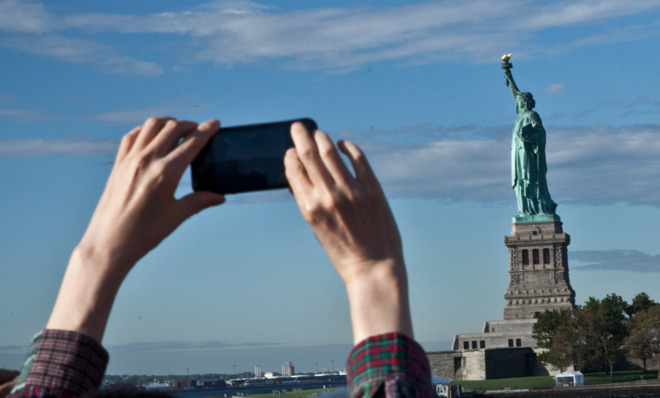Is Airbnb hurting or helping New York City?
New York's attorney general and the vacation rental site have gone to the mat

A free daily email with the biggest news stories of the day – and the best features from TheWeek.com
You are now subscribed
Your newsletter sign-up was successful
Airbnb's spat with the state of New York is heating up this week.
Earlier this month, New York Attorney General Eric Schneiderman subpoenaed the vacation rental website for information on thousands of its hosts statewide, demanding their addresses, the dates and durations of their bookings, and data related to the revenue they collected from the rentals. The issue: Schneiderman claims the short-term rental hosts may be breaking a New York state law that bars renters from subletting their apartments for less than a month.
Airbnb isn't taking the accusations lying down. Last week, the company filed a motion to block Schneiderman's subpoena, claiming it's an "unfounded fishing expedition" with no proof of wrongdoing. Then, on Monday, the company threw its weight behind a host-started petition that encourages the New York state legislature to "legalize sharing and fix the poorly written slumlord law," according to The Wall Street Journal.
The Week
Escape your echo chamber. Get the facts behind the news, plus analysis from multiple perspectives.

Sign up for The Week's Free Newsletters
From our morning news briefing to a weekly Good News Newsletter, get the best of The Week delivered directly to your inbox.
From our morning news briefing to a weekly Good News Newsletter, get the best of The Week delivered directly to your inbox.
Both the company and the city have much at stake.
A law that prevents renters from re-renting their homes is an obvious issue for Airbnb. The company takes a 6 to 12 percent cut of every rental, and in just five years, has connected over 8.5 million users with hosts in 192 countries. Airbnb's New York user base is about 225,000 strong, nearly 15,000 of whom host guests from around the world. A threat to that substantial revenue stream is a serious problem for the company.
For its part, New York City is losing a lot of tax revenue from Airbnb. By renting rooms and full apartments on the cheap, Airbnb users are taking a bite out of the city's hotel industry — which in turn takes a bite out of state and city taxes collected from the industry. NYC & Company, the city's official tourism agency, issued a statement saying, "This illegal practice takes away much needed hotel tax revenue from city coffers with no consumer protections against fire- and health-code violations."
Airbnb counters that about 87 percent of New York's hosts are sharing their own living spaces with guests. Because they're home during the rental period, they're not violating the law. And besides, the responsibility is on the hosts — not Airbnb — to obey local laws, the company says.
A free daily email with the biggest news stories of the day – and the best features from TheWeek.com
But Airbnb's best argument against Schneiderman might be that its service actually helps the city's tourism industry more than it hurts it. The city's hotels are unusually expensive, it argues, averaging about $275 a night. Airbnb's rentals allows people to visit the city who otherwise wouldn't be able to afford it.
In The Daily Beast, Jim Epstein puts it like this:
If there were more mini-hotels and fewer apartments in New York City, one can imagine worse fates. If rents go up, more tenants might take in Airbnb guests, creating new opportunities for people to come to New York on a limited budget. New York City will only continue to thrive if people who aren’t rich have opportunities to visit or move here — and that will only happen if we leave it to tenants, landlords, and tourists to figure out amongst themselves how best to divvy up limited space. [The Daily Beast]
There are other hopeful signs that common ground could be found between the two parties. Saying "we believe that it makes sense for our community to pay occupancy tax," Airbnb has stated on its company blog that it wants to work with New York to pass laws and "remove bad actors" from the site. The Wall Street Journal has also reported that Schneiderman's office is "primarily investigating people who may be skirting state law by renting out multiple units or obtaining their long-term primary residence through the service" and not "casual Airbnb vacationers and hosts." It remains to be seen, however, whether either position could actually lead to a detente.
Carmel Lobello is the business editor at TheWeek.com. Previously, she was an editor at DeathandTaxesMag.com.
-
 Health insurance: Premiums soar as ACA subsidies end
Health insurance: Premiums soar as ACA subsidies endFeature 1.4 million people have dropped coverage
-
 Anthropic: AI triggers the ‘SaaSpocalypse’
Anthropic: AI triggers the ‘SaaSpocalypse’Feature A grim reaper for software services?
-
 NIH director Bhattacharya tapped as acting CDC head
NIH director Bhattacharya tapped as acting CDC headSpeed Read Jay Bhattacharya, a critic of the CDC’s Covid-19 response, will now lead the Centers for Disease Control and Prevention